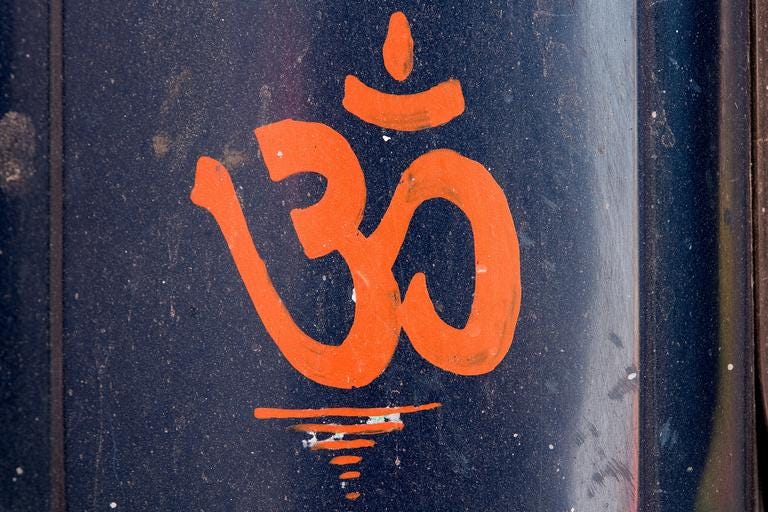It is a common misconception among Hindu parents that the word ‘religion’ must not be uttered at home, except when referring to other religions in a positive, inclusive way. Parents think that people in western countries do not talk to their kids about religion, and only religious fanatics do so.
But what are the facts? According to a recent study by Pew Research Centre, the percentage of U.S. teens who say they attend religious services is 74%. 24% of U.S. teens say that religion is very important in their lives, while 36% said it is somewhat important. About half of the teens surveyed said they had “all the same” religious beliefs as their parents.
More importantly, 80% of the parents who say that religion is “not too important” in their life have a teen who feels the same way. In comparison, 45% of parents who say religion is “very important” have a teen who takes the same view. These are among the key findings of a Pew Research Center survey of 1811 teenagers and one of their parents, conducted in 2019.
Why is this important for us? Most Indians imagine the American teen to be irreligious, rebellious, and fiercely independent. Suppose parents and children knew the interesting findings in this study. Would that put less pressure on Indian parents to emulate the supposed attitude of their American counterparts?
While most Hindu parents avoid discussing Hinduism, temples, and dharma with their kids, a whopping 59% of U.S. teens aged 13-17 talk about religion with their family. 48% of U.S. teens say grace before meals, and 25% read religious scriptures with their family. And - hear this - about three-quarters of teens who do religious things with their family say that these activities bring them “enjoyment,” even when many of them say they participate in activities because their parents want them to.
What are the critical learnings for Hindu parents from this report?
Children follow in the footsteps of their parents.
Overall, U.S. teens attend religious services about as often as their parents do: 44% of U.S. teens say they go to religious services at least once a month, almost the same as the share of their parents who say they attend monthly (43%). What this means: if you do puja, recite Hanuman Chalisa, light the lamp daily and celebrate Hindu festivals, the chances are that your children will emulate you.
Even if they start out doing religious activities because their parents want them to, they enjoy and find peace. What this means: even if they appear to be grumbling, you as parents must show them the way till it becomes a habit, and then they will start to enjoy ritual and tradition. The report further states that “U.S. teens take after their parents religiously, attend services together, and enjoy family rituals.” The complete report is available here.
The next time your teenagers are influenced by American pop culture and start blaming ‘brown parents’ for mindless religiousness, share this study with them. They will be surprised to know that mainstream American parents tell their kids many of the same things you tell your kids to do.
Indian parents and children wrongly assume that the modern American model emphasizes atheism. The truth is not only surprising but begs the question - why should only Hindu parents and children feel the need to prove their secular credentials?
This report should remove any hesitation in the Hindu parent’s mind that teaching children about Hinduism is somehow regressive. We should initiate our children into religion: not because American parents are doing it, but because it is the most natural thing to do.




